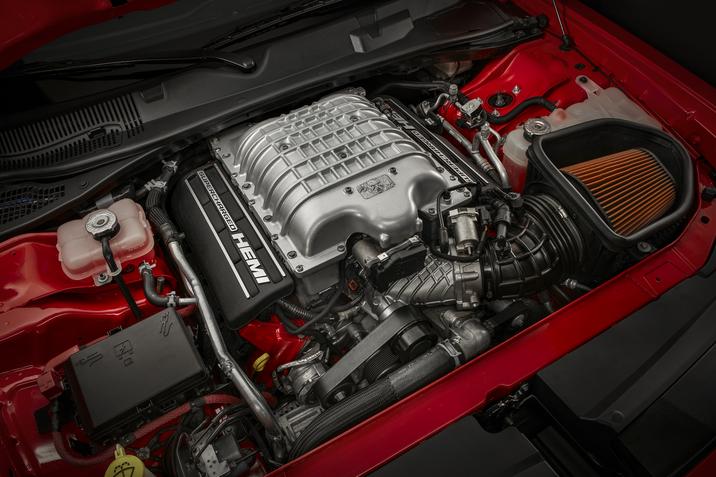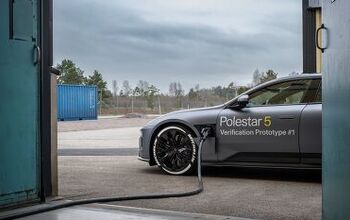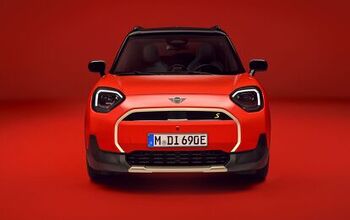FCA Faces $79 Million Fine Over U.S. Fuel Economy Shortfall

Fiat Chrysler Automobiles is facing a $79 million civil penalty over its inability to adhere to fuel economy requirements in 2017. Considering the automaker was already hit with a $77 million fine for 2016 model year requirements, the announcement is not unexpected. FCA’s domestic lineup is also loaded with large vehicles featuring sizable motors, a status quo it hopes to offset by buying carbon credits from Tesla.
In fact, the company appears to be taking a wait-and-see approach in regard to pursuing greener automobiles. While it continues to maintain its $10 billion commitment through 2022, aimed at delivering more hybrid and electric vehicles, the automaker’s established strategy involves eating whatever penalties it incurs via federal economy requirements or attempting to pay them off in advance.
Frankly, it might be a more cost-effective way to run the company — as it allows the automaker to continue leveraging older models (cough, Dodge). It’s not like people aren’t buying them… though perhaps not in the same numbers FCA originally claimed. The development of electric vehicles also requires quite a bit of cash, with little promise of recouping those funds through sales. Simply paying emission fines could give the company more time to fine-tune its hybrid and electric models while also minimizing the amount of money it has to invest during an uncertain period for the auto industry.
Then again, FCA could be strategizing itself into obsolescence by not pursuing electrification quite so aggressively as some of its rivals. However, plenty of them are also buying emission credits and taking it easier with electrification.
The Department of Transportation’s report came out on Tuesday, noting that Fiat Chrysler had failed to meet the standards set for 2017. While the report has since been taken down (likely temporarily), FCA confirmed it was notified, adding that it has 60 days to respond.
[Image: FCA]

A staunch consumer advocate tracking industry trends and regulation. Before joining TTAC, Matt spent a decade working for marketing and research firms based in NYC. Clients included several of the world’s largest automakers, global tire brands, and aftermarket part suppliers. Dissatisfied with the corporate world and resentful of having to wear suits everyday, he pivoted to writing about cars. Since then, that man has become an ardent supporter of the right-to-repair movement, been interviewed on the auto industry by national radio broadcasts, driven more rental cars than anyone ever should, participated in amateur rallying events, and received the requisite minimum training as sanctioned by the SCCA. Handy with a wrench, Matt grew up surrounded by Detroit auto workers and managed to get a pizza delivery job before he was legally eligible. He later found himself driving box trucks through Manhattan, guaranteeing future sympathy for actual truckers. He continues to conduct research pertaining to the automotive sector as an independent contractor and has since moved back to his native Michigan, closer to where the cars are born. A contrarian, Matt claims to prefer understeer — stating that front and all-wheel drive vehicles cater best to his driving style.
More by Matt Posky
Latest Car Reviews
Read moreLatest Product Reviews
Read moreRecent Comments
- Bd2 Hyundai's designs are indeed among the most innovative and their battery technologies should allow class leading fuel consumption. Smartstream hybrids are extremely reliable.
- 28-Cars-Later So now H/K motors will last longer in between scheduled replacements. Wow, actual progress.
- AZFelix I have always wondered if the poor ability of Tesla cars in detecting children was due to their using camera only systems. Optical geometry explains that a child half the height of an adult seems to have the same height as that same adult standing twice as far away from the viewer.
- 28-Cars-Later Actually pretty appealing (apparently I'm doing this now). On a similar note, a friend of mine had a difficult situation with a tenant which led to eviction and apparently the tenant has abandoned a 2007 Jag S-Type with unknown miles in the garage so he called me for an opinion. Before checking I said $2-3 max, low and behold I'm just that good with the 3.0L clocking in at $2,3 on average (oddly the 4.2 V8 version only pulls $2,9ish) and S-Types after MY05 are supposedly decent.
- DO I have owned a 2012 LR4 since day one and it has been the best vehicle I have ever had the pleasure of having in the garage. I know how easy it is to hate on Land Rover but this LR4 is comfortable, has a ton of storage room and is so versatile. With 110k miles, mine is now relegated to ‘other’ car use but is still the go to for off road adventures and snow runs. Nice to see one featured here - I think they are so underrated.


































Comments
Join the conversation
I see the trolls who love to identify with the world's worst people and companies have latched on to FCA. It's laughable because there's no strategy or politics to this situation. Chrysler is exactly the same company it has always been, generation after generation: the also-ran of the Detroit Three, milking obsolete platforms for the last penny, balancing its reputation for cheap interiors and poor reliability with a knack for carving out a niche with fun colors and cheap horsepower, often having good ideas but rarely having the money to develop them properly (behold the brilliant but unreliable Pacifica Hybrid, with its habit of becoming engulfed in flames), and somehow managing to come back from the brink every time through pluck or luck (K-cars, the SUV craze). No strategy here other than making it to next quarter in one piece, long term be damned.
This is simply a $79 million tax.